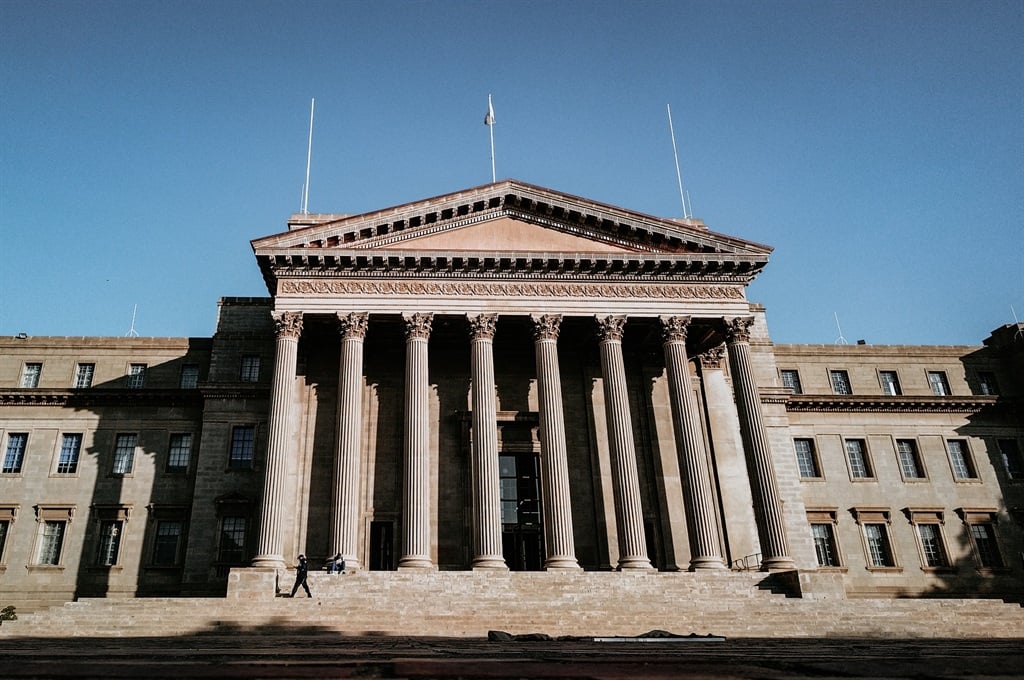
South African universities play a pivotal role in shaping the future of the nation's economy and society. But to do this, they must adapt and innovate. Failure to do so could have long-lasting, far-reaching consequences, writes Emmanuel Ojo.
The 21st century heralds a new era of constant disruption, making it a transformative time for humanity. This era, known as a 'VUCA World' (Volatility, Uncertainty, Complexity, and Ambiguity), has been marked by global events such as the millennium bug, the rise of social media, the 2008-2009 global financial crisis, and the Covid-19 pandemic. Amid these circumstances, South African universities face a critical question: "Are they equipped to thrive and make meaningful contributions in this VUCA world?"
To adapt and innovate in response to a VUCA environment, South African universities need to address these five key areas:
- Current Education System
Is the current education system in South African universities sufficiently flexible, adaptable, and innovative to prepare students for the unpredictable and rapidly changing VUCA world? As you ponder on this question, think about the importance of the Basic Education sector and how responsive the Curriculum Assessment Policy Statements (CAPS) as currently presented by the National Department of Basic Education (DBE) is.
Do the learners nurtured within our schools, in conformity with the prerequisites outlined in the National Curriculum Statement (Grades R-12), possess the essential acumen and adaptability necessary to flourish and triumph within our South African universities?
READ | Transforming higher education by investing in academic staff
The distressingly high dropout rates and the arduous struggles students face in completing their studies within record time may serve as poignant indicators that demand our meticulous contemplation. For South African universities to partake, collaborate, and competitively thrive, it is incumbent upon us to rectify the foundational elements.
The national government must expeditiously reassess the quality assurance measures traversing the entire value chain of the Department of Basic Education (DBE), commencing from policy review to curriculum evaluation, and urgently address the archaic Policy on the Minimum Requirements for Teacher Education Qualifications. The urgency of this matter has become even more compelling and inescapable than ever before.
- Technology Integration
How effectively are universities integrating technology into their teaching and research methods? This holds particular significance when considering the accelerated pace of digital transformation spurred by the unprecedented impact of the Covid-19 pandemic. Evidence has revealed that research-intensive universities in South Africa swiftly adapted to the challenges by embracing Emergency Remote Teaching and Learning (ERTL), whereas historically disadvantaged universities faced greater hurdles in this regard.
However, it is not solely a matter of investing in technology infrastructure within our universities. It is imperative to truly integrate and embed technology across our teaching practices, including postgraduate research supervision and research methodologies. Such integration is essential to ensure the attainment of high-quality, pioneering research.
In the era of Artificial Intelligence (AI) and Machine Learning (ML), particularly considering the ground-breaking advancements made by OpenAI in November 2022 to democratise the use of AI, South African universities cannot afford to remain mere spectators on the sidelines. Instead, we must adopt a forward-thinking approach, acknowledging the transformative potential of these technologies. Rather than succumbing to a pessimistic stance regarding the perils of AI, we must proactively explore avenues to maximise the advantages offered by these advancements in a rapidly evolving world.
The education landscape and the world of work are being unequivocally challenged, leading to profound disruptions within the global labour market dynamics. South African universities, therefore, have an obligation to embrace this paradigm shift and position themselves as active participants in shaping the future, seizing the opportunities that arise amidst this transformative wave.
- Curriculum Development
How are South African universities evolving their curriculums to equip students with skills for the future, such as critical thinking, creativity, resilience, adaptability, digital literacy, and leadership in a VUCA world? The term "transformation" is often used loosely, particularly as our focus has been captivated by the lingering effects of apartheid. However, as we approach the thirty-year milestone since its end in 2024, it is imperative that we break free from fixating solely on the past and instead embrace the boundless potential of the future.
Our university curricula must transcend mere existence, breathing with vitality, and attuned to the ever-changing world that transcends disciplinary boundaries. It is within this context that we must actively reform our curricula, equipping the labour force of tomorrow with the adaptability and resilience necessary to thrive in a volatile, uncertain, complex, and ambiguous (VUCA) world.
READ | Universities vital for future growth
The acceleration of technology has already unleashed a tsunami of transformation, compelling South African universities to adopt a fresh perspective. We find ourselves facing significant national challenges, from the debilitating impact of load shedding on our national economy to the deficiencies in service delivery across provincial and national government departments. Moreover, we grapple with alarmingly high levels of unemployment in an economy that lacks a clear, easily traceable national strategy to support the growth and sustenance of Small, Medium, and Micro Enterprises (SMMEs).
Amid these realities, South African universities must transcend conventional thinking, questioning prevailing norms, and explore innovative approaches. We must revitalise our curricula to meet the demands of a rapidly changing world, fostering a new breed of graduates equipped to navigate the complexities of our time. By doing so, we can unlock the full potential of our institutions of higher learning, surging forward with resilience, ingenuity, and prosperity in the face of an uncertain future.
- Research and Innovation
Are South African universities cultivating an environment that nurtures research, innovation, and the cultivation of rare expertise through interdisciplinary collaboration, thereby effectively addressing intricate national and global challenges? Operating within the complexities of the VUCA world, South African universities require a national innovation system that fosters the development of local skills while acknowledging the significance of attracting international talent. At the crux of the global knowledge economy, where research and innovation hold paramount importance, lies the crucial need for highly qualified researchers and exceptional postgraduate students affiliated with our universities.
To establish a truly favourable setting for research, innovation, and the cultivation of rare expertise through interdisciplinary collaboration, alignment between the national departments of Labour and Home Affairs and the National Development Plan 2030 is imperative. Skilled researchers, scholars, and postgraduate students serve as vital stakeholders within our universities.
As South Africa may not possess an abundant supply of such talents locally, it becomes crucial to prioritise the attraction of much-needed skills from around the world, including Africa, in harmony with the principles embodied by the African Continental Free Trade Area (AfCFTA).
- Global Collaboration
To what extent do South African universities harness the potential of international partnerships and collaborations to cultivate a mosaic of diverse perspectives, enhance the learning journey, and equip students for the rigours of global competition? This question resonates deeply, prompting focused consideration due to its profound significance. South African universities cannot overlook the pivotal value of leveraging international partnerships and collaborations.
In our interconnected VUCA world, where the ripple effect of disruptions reverberates effortlessly from one corner to another, collaborative endeavours assume heightened importance. We must transcend our conventional approach, recognising the imperative of concerted efforts. Intentionality must underscore our partnerships, guided by shared interests that transcend superficial differences. The true power of a partnership lies in jointly addressing the challenges that permeate society, for our volatile and unpredictable world has demonstrated unequivocally that collaboration lies at the very core of human survival.
The recent memory of our collective response to the pandemic and the remarkable strides achieved in the development of Covid-19 vaccines stands as a vivid reminder of this truth. Let us not forget the monumental breakthroughs that emerged through global cooperation during that time. Therefore, South African universities must proactively seek out and foster international partnerships that invigorate mutual growth, infuse educational experiences with richness, and equip our students to excel in the global arena. By embracing the spirit of collaboration, we can conquer obstacles, forge new horizons, and navigate the ever-evolving terrain of our interconnected world.
Showcasing Excellence
Despite challenges, South African universities have demonstrated noteworthy excellence. For instance, the University of Witwatersrand has made substantial contributions to high-performance computing and Covid-19 research. Through the African Climate and Development Initiative, the University of Cape Town is combating climate change.
The Africa Health Research Institute at the University of KwaZulu-Natal is striving to improve the health and wellbeing of populations of under-resourced populations. The African Institute for Mathematical Sciences at Stellenbosch University is training the next generation of African mathematicians. In addition, the University of Pretoria is renowned for its veterinary science and agriculture research.
Regardless of the various constraints, such as funding, an aging academy, and concern regarding the mobility of students and staff, these examples and case studies demonstrate what is possible if we address the five critical questions for future-proofing South African Universities. With these South African universities guiding the way in distinctive ways and fields, they could serve as a model and guide for other institutions.
Pivotal role
South African universities play a pivotal role in shaping the future of the nation's economy and society. They are the engines of research, innovation, and social mobility. However, to succeed in a VUCA world, they must adapt and innovate. Failure to do so could have long-lasting, far-reaching consequences. The time to act is now.
- Emmanuel Ojo, is Deputy Head of School at the Wits School of Education
Want to discuss hotly debated topics with someone from across the world? Sign up for our global dialogue programme and get matched for a conversation
Disclaimer: News24 encourages freedom of speech and the expression of diverse views. The views of columnists published on News24 are therefore their own and do not necessarily represent the views of News24.




 Publications
Publications
 Partners
Partners























